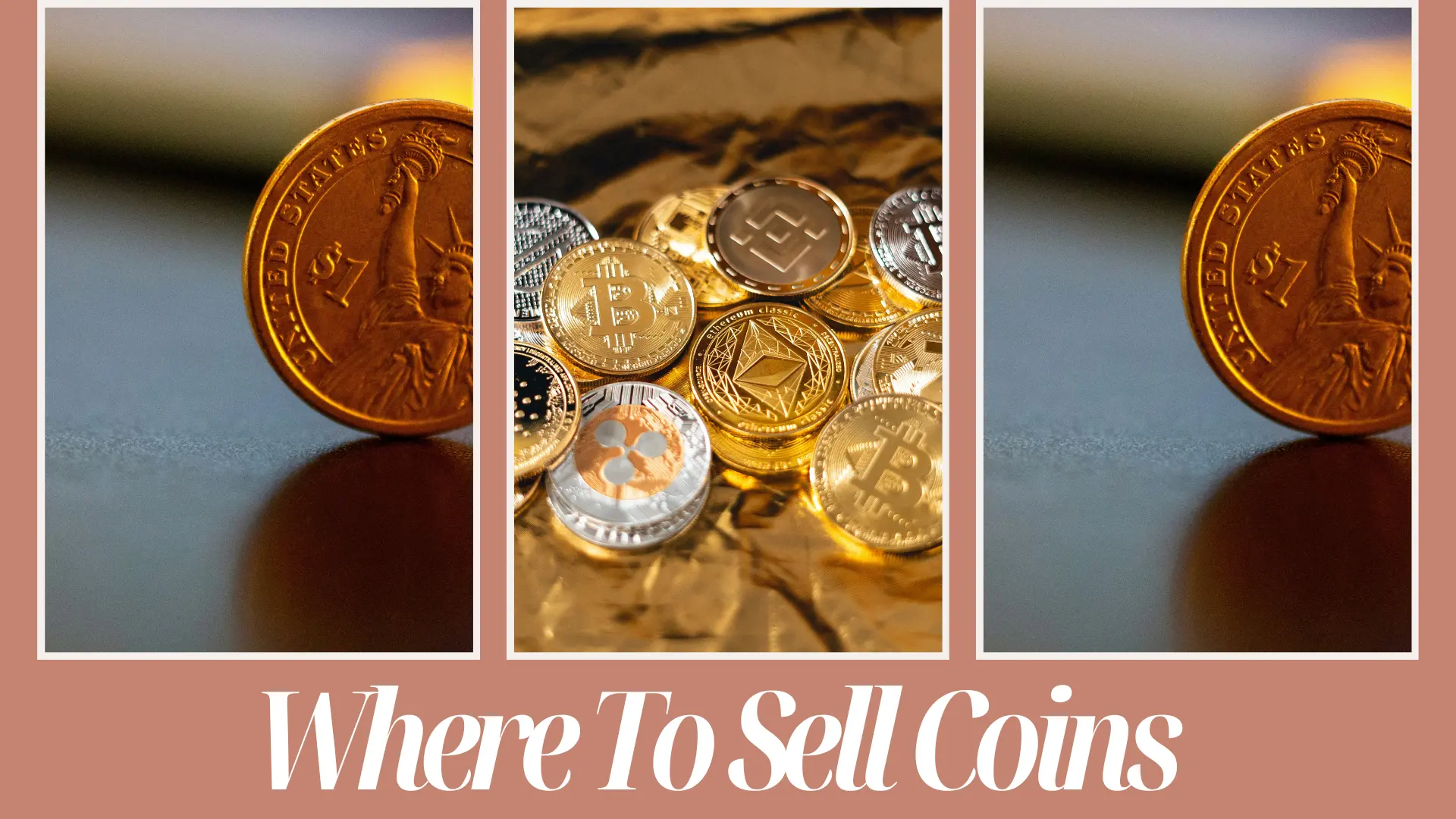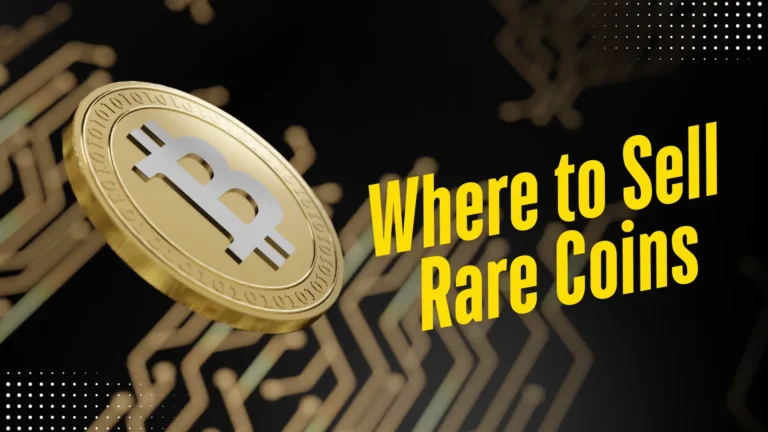Where To Sell Coins

Selling coins can be a profitable endeavor, whether you’re a seasoned numismatist or someone with a few rare pieces to part with. However, to get the best value for your coins, it’s crucial to understand where and how to sell them effectively. From online marketplaces to local dealers, various platforms cater to coin sellers, each with its own advantages. This guide will walk you through the best places to sell your coins and provide tips to ensure a successful transaction.
1. Online Marketplaces
a. eBay
eBay is one of the most popular platforms for selling coins due to its large user base. The platform allows you to reach buyers from around the world, increasing your chances of getting a competitive price. However, eBay comes with listing fees and transaction fees, which can cut into your profits. To maximize your success, ensure that you provide high-quality images and detailed descriptions, including year, mint mark, and condition.
One challenge of selling on eBay is competition. Many sellers offer similar coins, so pricing and presentation are key factors in attracting buyers. Additionally, be mindful of shipping policies and buyer protection programs to ensure smooth transactions.
b. APMEX
APMEX is a well-known precious metals dealer that buys coins directly from sellers. This option is ideal for those looking for a straightforward selling process without dealing with individual buyers. However, APMEX usually has a minimum value requirement for purchases, often around $1,000.
The selling process involves shipping your coins to APMEX, where they are evaluated before an offer is made. If you accept the offer, payment is processed through check, wire transfer, or other secure methods. This method provides a hassle-free alternative for sellers who prefer a trusted buyer.
c. Specialized Coin Platforms
There are dedicated platforms for selling rare and collectible coins, such as numismatic marketplaces and appraisal-based websites. These platforms attract serious collectors who are willing to pay a premium for valuable coins. Unlike general marketplaces, specialized platforms often offer professional appraisals and authentication services, increasing buyer confidence.
While these platforms may have fewer buyers compared to eBay, they often provide a more secure and knowledgeable environment for both buyers and sellers. Listings are usually vetted, reducing the chances of fraudulent transactions.
2. Local Coin Dealers
If you prefer an in-person transaction, selling to local coin dealers is an excellent option. Local dealers often have extensive knowledge of market trends and can offer instant cash payments. The advantage of selling to a dealer is that you avoid the hassle of listing fees, shipping, and online negotiations.
However, local dealers need to make a profit, so their offers may be slightly lower than what you might get from a direct sale. To ensure you’re getting a fair price, consider visiting multiple dealers for quotes before making a final decision. Additionally, research their reputation through customer reviews to ensure a trustworthy transaction.
3. Coin Shows and Auctions
a. Coin Shows
Coin shows are great venues to sell coins because they attract serious collectors and dealers. At a coin show, you can negotiate directly with potential buyers and compare multiple offers in real-time. Coin shows also allow you to network with experts, gaining insights into market demand and pricing.
Before attending a coin show, research the participating dealers and prepare a list of your coins, including details about their condition and estimated value. This preparation will help you present your collection professionally and negotiate effectively.
b. Auctions
Both live and online auctions can be excellent places to sell rare or high-value coins. Auction houses specialize in bringing together serious collectors, increasing the chances of selling your coins at competitive prices. Some auction houses offer appraisals and authentication services, ensuring your coins are presented to buyers with credibility.
The downside of auctions is that they may charge seller fees and commissions, reducing your overall earnings. Additionally, the final sale price depends on bidding activity, which can sometimes result in lower-than-expected returns.
4. Social Media and Online Forums
Social media platforms such as Facebook, Instagram, and TikTok have become increasingly popular for selling collectibles, including coins. There are many niche groups and communities dedicated to numismatics, where you can connect with potential buyers directly.
However, selling through social media comes with risks, such as scammers and unverified buyers. Always use secure payment methods, such as PayPal Goods & Services, to protect both parties. Avoid sending valuable coins without confirmed payment, and be cautious of buyers who offer significantly more than the market price.
Similarly, online coin forums, such as those on Reddit and specialized numismatic websites, can be great places to find interested buyers. Engaging with these communities by sharing knowledge and participating in discussions can build trust and attract buyers to your listings.
Tips for Selling Coins Successfully
a. Accurate Valuation
Before selling your coins, it’s important to determine their true market value. Professional coin grading services, such as the Numismatic Guaranty Corporation (NGC) or the Professional Coin Grading Service (PCGS), can provide an official grade that enhances credibility and increases buyer confidence.
Research recent sales of similar coins to get an idea of their current market value. Prices fluctuate based on demand, rarity, and condition, so staying informed will help you set realistic expectations.
b. High-Quality Images
Clear and high-resolution images are essential when selling coins, especially online. Make sure to photograph both the obverse (front) and reverse (back) of the coin. Highlight key details, such as mint marks and any unique features.
Use proper lighting to avoid glare, and place the coin on a neutral background to enhance visibility. Investing in a good camera or using a magnifying lens can make a significant difference in attracting potential buyers.
c. Detailed Descriptions
Providing a well-written description can significantly impact the sale of your coin. Include details such as:
- Coin type and denomination
- Year of minting and mint mark
- Metal composition
- Condition and any visible wear
- Certification details (if applicable)
A well-described listing helps buyers make informed decisions and reduces the chances of returns or disputes.
d. Secure Transactions
Security is crucial when selling coins, especially online. Always use trusted payment methods and verify buyer credibility before shipping. For high-value transactions, consider using escrow services to protect both parties.
If shipping coins, use secure packaging and opt for insured shipping with tracking. This ensures that your coins reach the buyer safely and reduces the risk of loss or fraud.
Conclusion
Selling coins can be a rewarding process when done correctly. Whether you choose to sell online, to local dealers, or through auctions, understanding the pros and cons of each method will help you make the best decision. By accurately valuing your coins, providing clear images and descriptions, and ensuring secure transactions, you can maximize your profits while protecting yourself from potential risks.
With the right approach, you can successfully sell your coins and connect with buyers who truly appreciate their value.





